The application of blockchain technology in the financial and banking sectors is being promoted. (Photo: GETTY IMAGES)
However, along with opportunities come a series of challenges regarding security, law, and human resources, requiring the Vietnamese banking system to have a long-term vision and synchronous solutions.
Following the direction of the Party and the Government, the banking industry has shown its pioneering role in digital transformation. From very early on, the State Bank issued decisions related to the development of science , technology, innovation and digital transformation; at the same time, continuously updated action programs to meet new requirements, encouraged units in the industry and credit institutions to apply advanced technologies such as AI, Big Data, Blockchain... in management, operation, product and service provision and policy communication.
"Effective assistant"
Currently, many banks in Vietnam have deployed AI applications at different levels; applied in customer care, transaction behavior analysis, fraud detection, credit scoring and digital product and service development. Some prominent AI tools in the world such as OpenAI have also been put into trial operation. Notably, at Agribank , AI has also become a useful tool to improve the effectiveness of policy communication, bringing products and services closer to people, especially in remote areas. "Not only shortening the technology gap, AI also helps strengthen trust, popularize digital skills and expand financial access opportunities for all customers, contributing to promoting financial inclusion and digital transformation in the banking industry", said Nguyen Khac Trung, Head of Agribank Digital Banking Department.
According to Mr. Trung, applying AI to communication activities is considered a solution to help improve service quality, while ensuring that policy messages, products and services are conveyed quickly, accurately and more closely to the people. The AI system allows consulting, answering and supporting customers 24 hours a day, everywhere, with flexible customization capabilities, adapting well to regional languages and cultures. At the same time, through "social listening" tools, banks can monitor and detect unusual signals early, thereby quickly analyzing the causes, assessing the level of impact and proposing timely response solutions. AI's ability to analyze in depth and provide response suggestions helps banks be more proactive, minimizing risks in information management.
In addition, Deloitte's report also shows that the world's leading investment banks can improve business performance by 27-35% thanks to AI applications, with revenue per employee expected to increase by up to 3.5 million USD by 2026. In Vietnam, many banks have pioneered the deployment of AI applications such as chatbots, eKYC, data analysis to predict customer behavior, detect fraud, contributing to improving service quality and service efficiency. Dr. Nguyen Quoc Hung, Vice Chairman and General Secretary of the Vietnam Banks Association, assessed that AI is no longer a tool but has become a core driving force reshaping all industries. For the banking industry, the explosion of AI is opening up breakthrough opportunities in many areas of operation, including policy communication and service and product development. The application of AI not only helps increase work efficiency, reduce costs, save time but also contributes to enhancing the safety of the financial system.
Long-term vision
However, AI is not a “magic wand” that can solve all problems. Despite the huge opportunities, the application of AI in banking still faces many barriers, the biggest of which is the security and safety of personal data. Head of the Department of Policy Management and Digital Transformation, Department of Information Technology (State Bank) Hoang Minh Tien said that in the context of banks promoting the application of AI, the important requirement is to protect personal data.
Around the world, many countries have issued strict regulations. In the US, the President has signed an executive order regulating AI-related issues, while the European Union has passed the Artificial Intelligence Law in 2024. Vietnam is also following this trend when the Government has issued a National Strategy on AI, and the National Assembly has passed many laws directly related to AI policy. Notably, the Personal Data Protection Law 2025 adds important regulations on data protection when processing in an artificial intelligence environment. Along with that, the Digital Technology Industry Law 2025 also devotes a chapter clearly defining the principles of AI application. "This is considered a fundamental legal corridor, guiding organizations and businesses in the process of putting AI into practice. However, to avoid potential risks, the use of AI needs specific instructions and strict control," Mr. Tien emphasized.
Dr. Nguyen Quoc Hung also said that it is necessary to prioritize investment resources in modern, scalable and highly secure information technology systems as a solid foundation for the deployment of complex AI applications, ensuring that data is always protected. At the same time, build specific mechanisms and policies to attract and retain experts in AI, data science and cybersecurity; continue to implement training programs to improve awareness and digital skills for all staff.
Sharing the same view, Associate Professor, Dr. Pham Manh Hung, Deputy Director of the Institute of Banking Science Research (Banking Academy) also emphasized the retraining and development of human resources. Accordingly, training and retraining are identified as key issues. Vietnamese banks need to learn from international experience and design their own roadmap suitable to domestic practices to build a team of human resources with comprehensive digital capabilities.
HONG ANH
Source: https://nhandan.vn/mo-khoa-ai-trong-hoat-dong-ngan-hang-post907305.html




![[Photo] Flooding on the right side of the gate, entrance to Hue Citadel](https://vphoto.vietnam.vn/thumb/1200x675/vietnam/resource/IMAGE/2025/10/28/1761660788143_ndo_br_gen-h-z7165069467254-74c71c36d0cb396744b678cec80552f0-2-jpg.webp)
![[Photo] Draft documents of the 14th Party Congress reach people at the Commune Cultural Post Offices](https://vphoto.vietnam.vn/thumb/1200x675/vietnam/resource/IMAGE/2025/10/28/1761642182616_du-thao-tai-tinh-hung-yen-4070-5235-jpg.webp)
![[Photo] National Assembly Chairman Tran Thanh Man received a delegation of the Social Democratic Party of Germany](https://vphoto.vietnam.vn/thumb/1200x675/vietnam/resource/IMAGE/2025/10/28/1761652150406_ndo_br_cover-3345-jpg.webp)


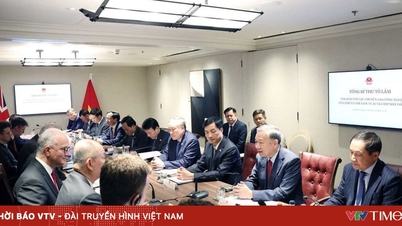





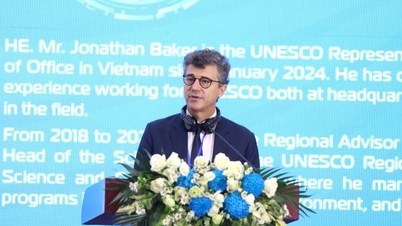

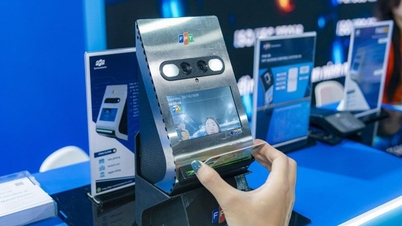
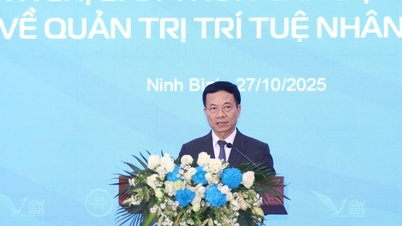




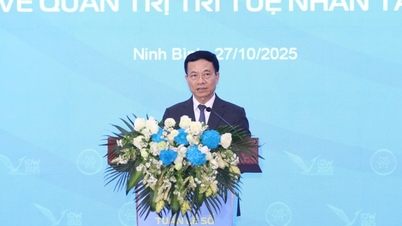


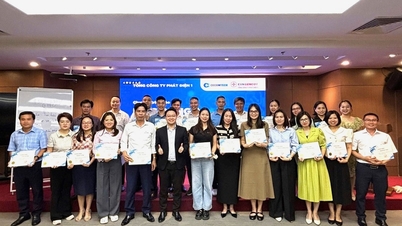





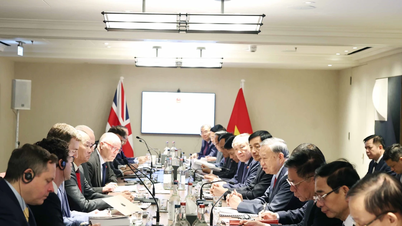
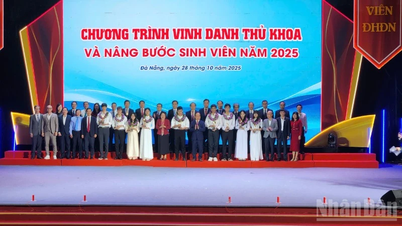


![[Photo] Flooding on the right side of the gate, entrance to Hue Citadel](https://vphoto.vietnam.vn/thumb/402x226/vietnam/resource/IMAGE/2025/10/28/1761660788143_ndo_br_gen-h-z7165069467254-74c71c36d0cb396744b678cec80552f0-2-jpg.webp)
![[Photo] President Luong Cuong attends the 80th Anniversary of the Traditional Day of the Armed Forces of Military Region 3](https://vphoto.vietnam.vn/thumb/1200x675/vietnam/resource/IMAGE/2025/10/28/1761635584312_ndo_br_1-jpg.webp)
































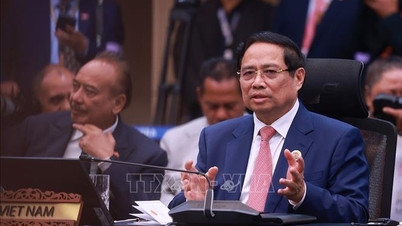

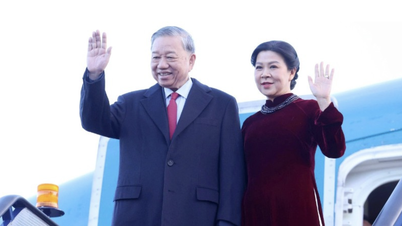





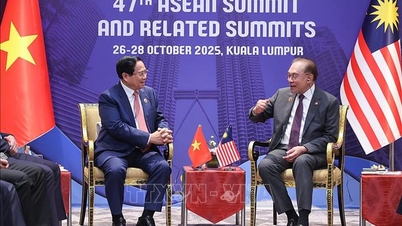

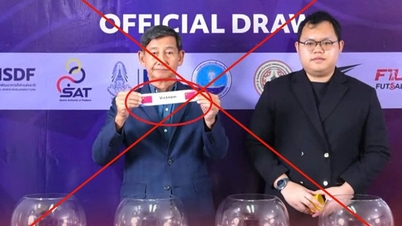

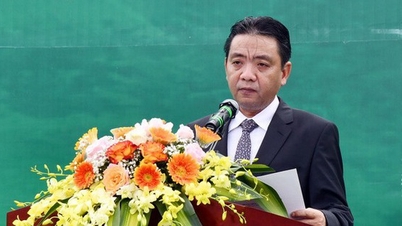
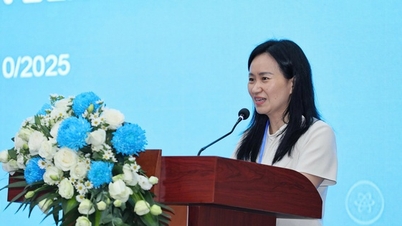
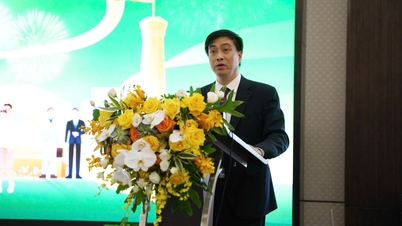











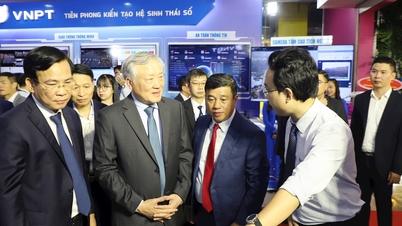















Comment (0)